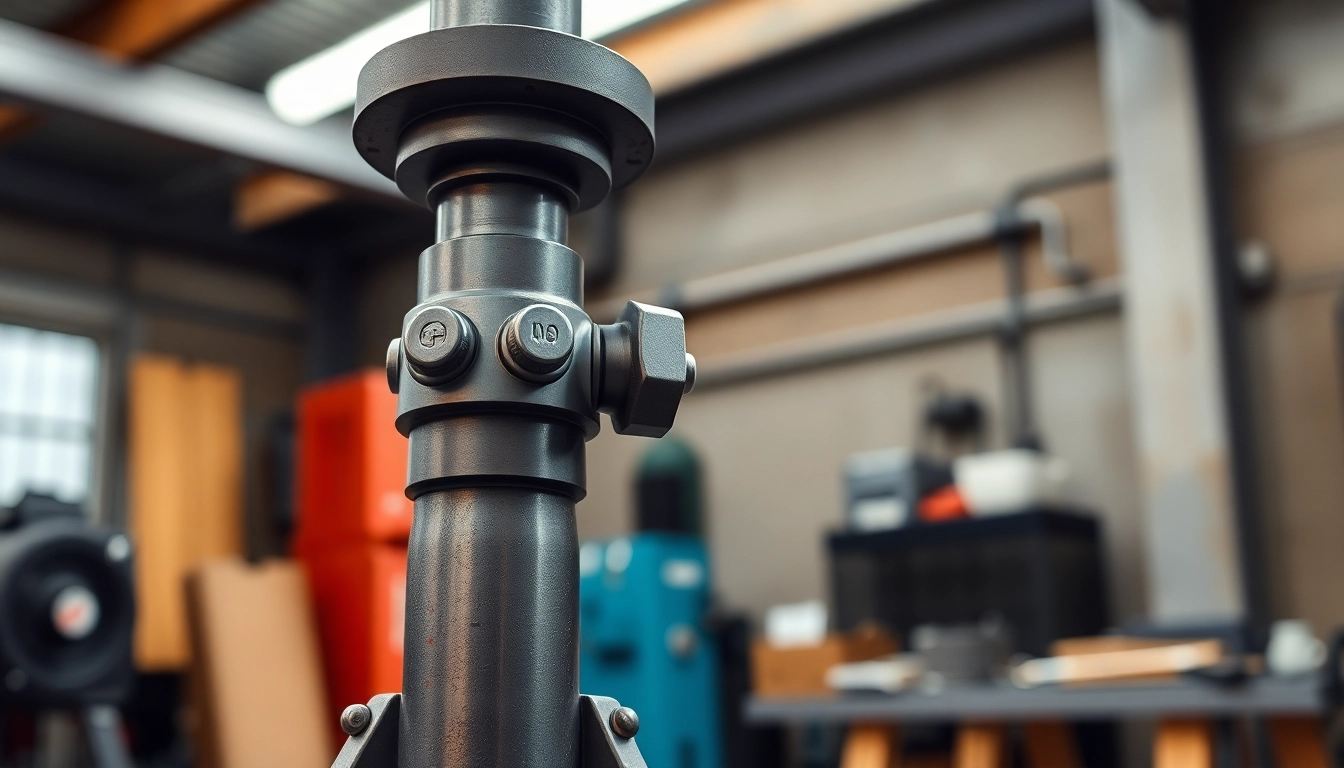Understanding the Level 5 NVQ Diploma in Controlling Lifting Operations
What is the Level 5 NVQ Diploma?
The Level 5 NVQ Diploma in Controlling Lifting Operations is a vocational course designed for individuals looking to advance their careers in the construction and lifting operations sectors. This qualification provides comprehensive training on the technical and regulatory requirements involved in controlling lifting operations safely and effectively. By obtaining this diploma, candidates can demonstrate their ability to manage lifting resources, assess risks, and implement safe operating procedures, reinforcing their role as competent professionals in a high-stakes workplace environment.
Importance in the Construction Industry
The construction industry is synonymous with risk and complexity, particularly when it comes to lifting heavy loads. As the industry continues to evolve, the need for skilled personnel who can ensure safety and efficiency in lifting operations has never been greater. The Level 5 NVQ Diploma in Controlling Lifting Operations equips learners with essential knowledge of health and safety regulations, equipment management, and operational planning, which are critical in preventing accidents and promoting workplace safety. Thus, it plays a vital role in enhancing the overall professionalism of the industry.
Overview of Key Skills Required
To successfully complete the Level 5 NVQ Diploma, candidates must develop a range of skills integral to effective lifting operations management. These include:
- Risk Assessment: Ability to identify potential hazards and implement control measures.
- Planning: Skills in developing and executing lifting plans, accounting for weather conditions, equipment availability, and workforce capabilities.
- Communication: Strong verbal and written skills to coordinate between teams and communicate effectively with stakeholders.
- Problem-Solving: Capacity to make quick decisions in unforeseen circumstances while maintaining safety protocols.
- Technical Knowledge: Understanding of lifting equipment, including cranes and hoists, and their appropriate use in various scenarios.
Core Components of the Diploma
Units and Modules Explained
The Level 5 NVQ Diploma is structured around various units that collectively cover the comprehensive skill set required for effective lifting operations management. Key modules include:
- Unit 1: Planning Lifting Operations – Focusing on the necessary planning strategies to ensure safe and effective lifting.
- Unit 2: Risk Management – Emphasizing the identification and management of risks associated with lifting activities.
- Unit 3: Equipment Selection – Guidelines on selecting appropriate lifting equipment based on the task requirements.
- Unit 4: Legislation and Standards – Knowledge of relevant health and safety legislation, ensuring compliance with industry standards.
Assessment Methods and Criteria
Assessment for the Level 5 NVQ Diploma is carried out through a combination of practical evaluations and written assignments. Candidates must complete assessments that demonstrate their ability to:
- Prepare and implement lifting plans indicative of workplace conditions.
- Conduct thorough risk assessments that mitigate hazards.
- Communicate effectively with team members and stakeholders.
- Manage resources efficiently to deliver lifting operation tasks on time and within budget.
Each unit is evaluated according to specific criteria, necessitating a clear demonstration of competence through both theoretical knowledge and practical application.
Time Management for Completing Assignments
Effective time management is crucial for successfully completing the Level 5 NVQ Diploma. Here are some strategies to consider:
- Set Clear Goals: Break down the assignment requirements into smaller, manageable tasks and set deadlines for each.
- Prioritize Tasks: Identify which aspects of the assignments require more immediate attention and tackle them first.
- Develop a Study Schedule: Allocate specific times for study and assignment completion to ensure consistent progress.
- Minimize Distractions: Create a suitable study environment that promotes focus and efficiency.
Preparing for the Exam
Effective Study Methods for NVQ Assessments
Preparing for the NVQ assessments can seem daunting, but utilizing effective study methods can simplify the process. Consider the following approaches:
- Active Learning: Engage with the material through discussions, practical exercises, and case studies rather than passive reading.
- Use Supplementary Resources: Leverage relevant textbooks, online courses, and practice questions such as those found in level 5 nvq diploma in controlling lifting operations answers.
- Peer Study Groups: Collaborate with fellow candidates to review content, share insights, and quiz each other on key concepts.
- Seek Guidance: Don’t hesitate to ask instructors or tutors for clarification on complex topics.
Common Challenges and Solutions
Many candidates face various challenges while studying for their NVQ assessments. Here are common hurdles and corresponding solutions:
- Challenge: Difficulty understanding technical concepts.
- Solution: Break down complex ideas into simpler components and use visual aids, such as diagrams and flowcharts.
- Challenge: Managing time effectively.
- Solution: Implement a structured schedule that allocates sufficient time for all topics while allowing for breaks and relaxation.
- Challenge: Test anxiety.
- Solution: Practice relaxation techniques and visualizations to reduce anxiety before assessments.
Utilizing Resources and Support
To facilitate effective preparation, candidates should utilize all available resources, including:
- Workshop Seminars: Participate in workshops that provide training on lifting techniques and regulations.
- Online Forums and Communities: Join online groups where candidates can ask questions and share insights.
- Study Materials: Use textbooks and study guides designed specifically for the NVQ qualification to aid understanding.
Answering Techniques for NVQ Questions
Understanding Question Formats and Expectations
Being familiar with the types of questions asked in NVQ assessments can greatly enhance candidates’ ability to respond effectively. Common formats include:
- Scenario-based questions: These require the candidate to apply their knowledge to real-life situations.
- Short answer questions: Typically straightforward but require precise and concise responses.
- Essay questions: These often need an in-depth analysis of a given topic; structuring responses clearly is crucial.
Strategies to Enhance Your Responses
When crafting responses to NVQ questions, consider employing the following strategies:
- Read Every Question Carefully: Ensure that you understand what is being asked before formulating an answer.
- Use Keywords: Identify and incorporate key terms from the questions to align your responses with the assessment criteria.
- Provide Relevant Examples: Strengthen your answers by citing practical examples or previous experiences that relate to the question.
- Stay Within Word Limits: Ensure that your answers are concise and to the point while addressing all aspects of the question.
Real-life Examples and Case Studies
Utilizing real-life examples and case studies can significantly bolster the quality of your answers. Providing context helps assessors gauge your practical understanding and ability to apply knowledge effectively in real-world scenarios.
For instance, discussing a specific incident where a lifting operation went awry can highlight your understanding of risk assessment, corrective actions taken, and lessons learned.
Maximizing Your Success
Post-Diploma Career Opportunities
Completing the Level 5 NVQ Diploma can open up numerous career opportunities. Graduates often find roles such as:
- Lifting Operations Supervisor: Overseeing daily lifting activities, ensuring compliance with safety standards.
- Site Manager: Managing construction sites, directing projects, and ensuring safety protocols are followed.
- Health and Safety Advisor: Advising organizations on compliance with lifting and safety regulations in the workplace.
- Lifting Equipment Engineer: Specializing in the maintenance and inspection of lifting equipment utilized in construction.
Continued Education and Professional Development
Continuing professional development is vital in the continuously evolving construction industry. After obtaining your Level 5 NVQ Diploma, consider pursuing additional qualifications or certifications such as:
- Level 6 NVQ Diplomas: Furthering expertise in specific areas of lifting and operations.
- Professional Memberships: Joining professional bodies that offer resources, networking, and career advancement opportunities.
- Specialized Training: Engaging in workshops and seminars that focus on advanced lifting techniques and safety regulations.
Networking and Building Industry Connections
Establishing connections in the lifting operations and construction industry is crucial for career progress. Consider the following networking strategies:
- Attend Industry Conferences: Engage with professionals, share insights, and learn from thought leaders.
- Join Online Professional Groups: Participate in discussions and share knowledge within specialized online communities.
- Participate in Local Workshops: Collaborate with local organizations and training firms for hands-on experiences and networking opportunities.



